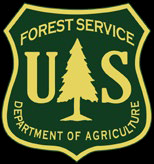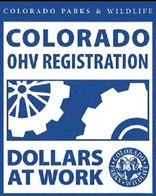Wearyman Route History
The lower portion of the Wearyman OHV route, is located within the confined valley bottom of the Wearyman Creek Watershed, which contains Wearyman Creek, a stream flowing westerly from Ptarmigan Pass into Turkey Creek northeast of the town of Red Cliff. In the early 1900s, a four- wheel drive trail was constructed connecting the Shrine Pass Road (FSR 709.1) to what later became Camp Hale. Historically, this route has provided a connection between Vail Pass (via Shrine Pass Road) and Camp Hale. This connector and the surrounding roads and trails (McAllister Gulch – FSR 708.1, Resolution – FSR 702.1, and others) are heavily used by the OHV recreational community.
Public Engagement Meeting
December 12 | 5:30 – 7:30 PM
Red Cliff Town Hall, Red Cliff Colorado
Why is There a Watershed Health Project?
- The current route is in the floodplain of Wearyman Creek and crosses the creek five times.
- The close proximity of the route to the creek creates erosion in some locations.
- This erosion washes sediment directly into the creek, impacting its health.
- The current crossings cause erosion and sedimentation when vehicles travel through the creek
- Sediment affects the stream habitat and the town of Red Cliff’s water supply.
Are There Any Solutions That Improve the Watershed and Maintain the OHV Route?
The Eagle River Coalition and the U.S. Forest Service (USFS) with the assistance of Colorado Parks & Wildlife’s (CPW) OHV grant program, asked Jacobs to look for potential cost-effective engineering solutions that would reduce impacts to the creek and wetland areas and would maintain the recreational use experience and values. Following an initial assessment of geology, constructability, and watershed health, Jacobs developed conceptual alignments for consideration. The Forest Service has narrowed these alignments based on hillside disturbance, private property impacts and project cost. The project team is seeking feedback from stakeholders on the proposal to make sure it aligns with the desired recreational activities.
Next Steps - Seeking Your Input
Please consider taking this survey to help shape the future of the Wearyman OHV route.
As route users and stakeholders, your input is valuable in determining the best alignment for the Wearyman OHV route.
Project Collaborators





